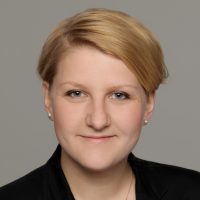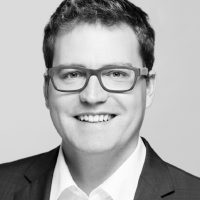Europe’s New Political Engine: Germany’s role in the EU’s foreign and security policy

Liana Fix
Council on Foreign Relations
Liana Fix is a fellow for Europe at the Council on Foreign Relations (CFR). She is a historian and political scientist, with expertise in German and European foreign and security policy, European security, transatlantic relations, Russia, and Eastern Europe. She is also the author of A New German Power? Germany’s Role in European Russia Policy (Palgrave Macmillan, 2021). Dr. Fix’s work focuses on German domestic and foreign policy, the European Union, transatlantic relations, and Europe’s relations with Russia and China.
Prior to joining CFR, Dr. Fix was program director for international affairs at Körber-Stiftung in Berlin. She was also a resident fellow at the German Marshall Fund in Washington, DC, and a DAAD/AICGS fellow at the American Institute for Contemporary German Studies. From 2018 to 2019, she was a fellow for global governance futures at the Robert Bosch Foundation Multilateral Dialogues. From 2014 to 2016, Dr. Fix was a doctoral fellow at the German Institute for International and Security Affairs and associate fellow at the German Council on Foreign Relations. From 2012 to 2013, Dr. Fix worked as a Mercator fellow for international affairs at the German Federal Foreign Office, the EU Delegation in Tbilisi, and the Carnegie Moscow Center.
Dr. Fix has contributed essays, policy papers, and articles to peer-reviewed journals including Foreign Affairs, Foreign Policy, and the Washington Quarterly, among others. She is also a frequent contributor to international and German-language media.
Dr. Fix received her MSc in theory and history of international relations from the London School of Economics and Political Science and her PhD in political science from the Justus Liebig University Giessen. She is a member of the European Leadership Network Younger Generation Leaders Network on Euro-Atlantic Security and of Women in International Security.

Tobias Bunde
Munich Security Conference
Tobias Bunde was a DAAD/AICGS Research Fellow in 2013. He is a researcher with the Centre for International Security Policy (CISP) at the Hertie School of Governance in Berlin. Since 2009, he has served as a policy advisor to Ambassador Wolfgang Ischinger, the chairman of the Munich Security Conference (MSC), since 2014 as Head of Policy & Analysis. During his DAAD/AICGS Fellowship in October and November 2013 while being a PhD candidate at the Berlin Graduate School for Transnational Studies, Tobias conducted interviews for his dissertation on the North Atlantic Treaty Organization’s (NATO). His dissertation, supervised by Prof. Dr. Thomas Risse and Prof. Dr. Wolfgang Seibel, asked how different interpretations of NATO’s “collective identity” affected the patterns of conflict and cooperation among NATO member states.
In addition to a PhD in Political Science from Freie Universität Berlin, Mr. Bunde holds a joint Master’s degree in International Relations from Freie Universität Berlin, Humboldt Universität, and Universität Potsdam. He also studied at Technische Universität Dresden, the Institut d’Etudes Politiques in Strasbourg, and George Washington University. Before entering his PhD program, Mr. Bunde was an associate member of the research group “Konfliktgeneratoren” within the Center of Excellence “Cultural Foundations of Social Integration” at Universität Konstanz as well as a research fellow with the Berlin-based think tank Stiftung Neue Verantwortung, where he worked on German foreign policy.
He has conducted research and published on German foreign and security policy, NATO, liberal order building, and the politics of international law. His work has appeared in journals such as Contemporary Security Policy, Sicherheit + Frieden, Internationale Politik and WeltTrends, He has written opinion pieces for FAZ, Tagesspiegel, the Financial Times, and Project Syndicate. Mr. Bunde is a contributor to the IR Blog. He has received scholarships from the German National Academic Foundation and the German-American Fulbright Commission, and is an alumnus of the Manfred Wörner Seminar and the Atlantic Council’s NATO Emerging Leaders working group.
A new report from the Finnish Institute of International Affairs looks at Germany’s role in European foreign and security policy, asking how dominant Germany has become within the EU. It features analysis from two former DAAD/AGI Research Fellows. Liana Fix focuses on Germany’s crisis management skills and policies in the case of Ukraine in her essay “Leadership in the Ukraine conflict: a German moment,” while Tobias Bunde turns toward Germany’s transatlantic partner in his essay “Germany and the United States: Partners in leadership on European security?” Download report.









